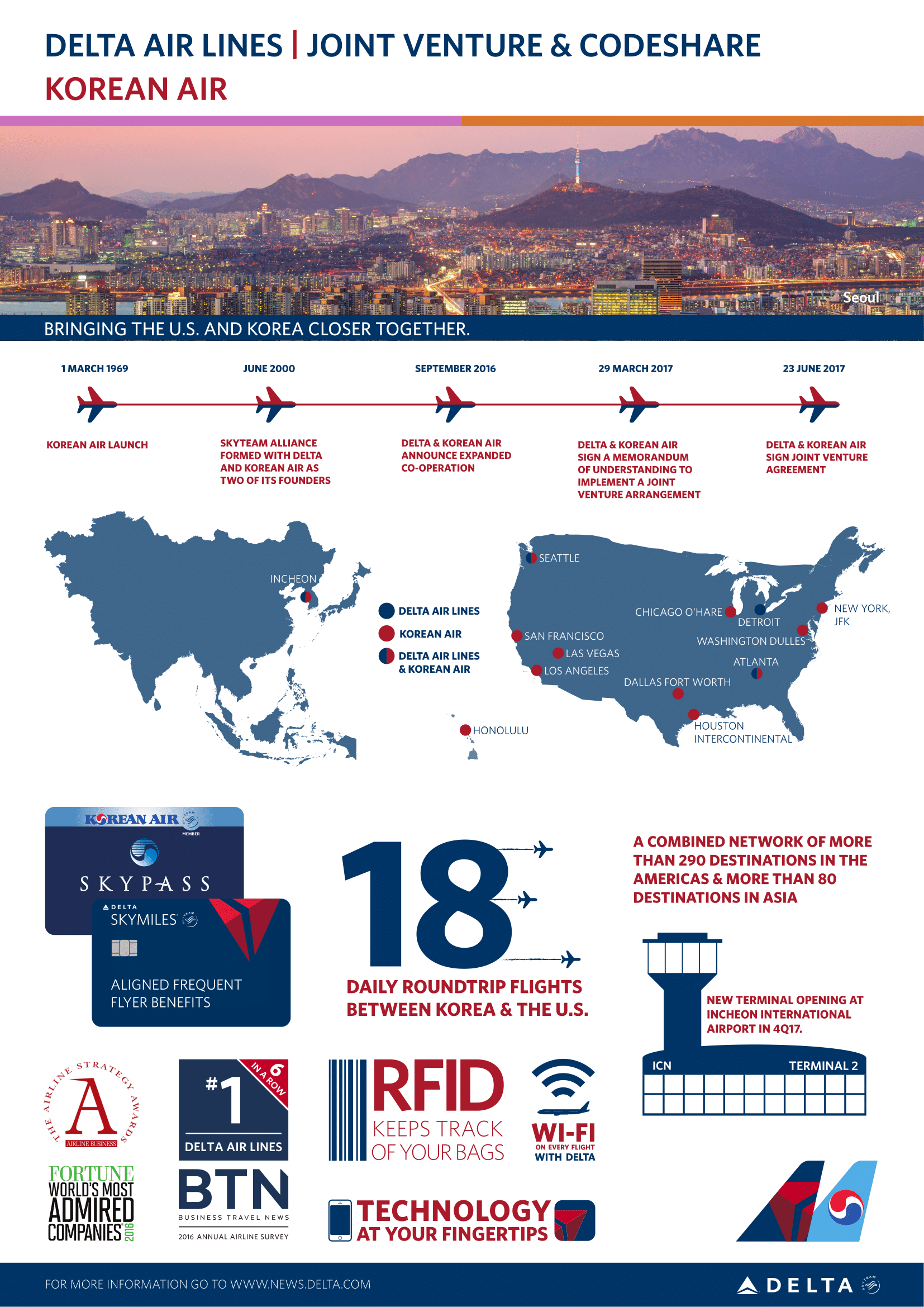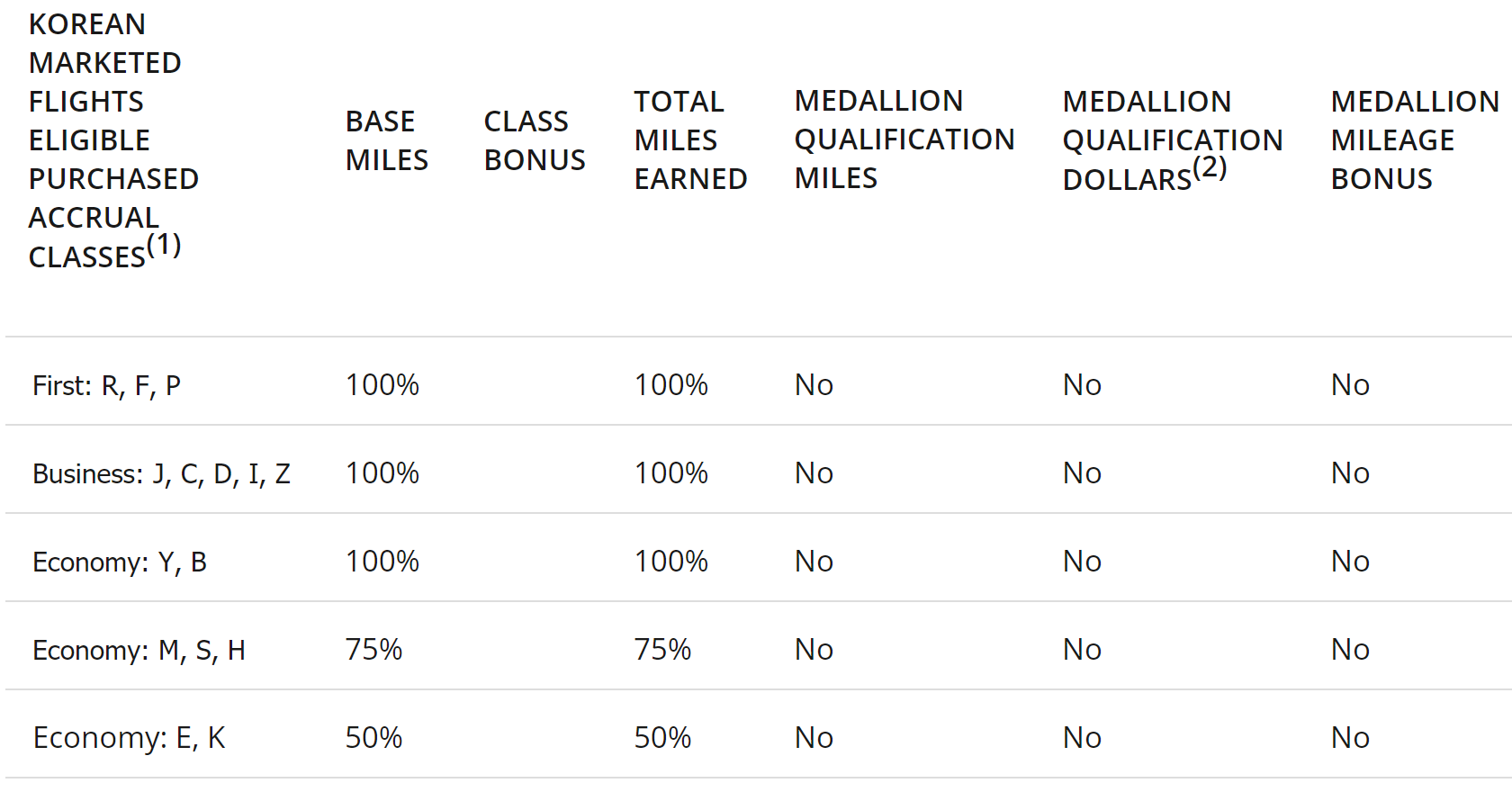Delta and Korean Air Sign Trans-Pacific Joint Venture Agreement
Last week, Delta and Korean Air deepened their 17-year partnership by tying a financial knot: a trans-pacific joint venture agreement. The two companies first became friends in 2000 as founding members of the SkyTeam Alliance. They announced their engagement this March via a memorandum of understanding.
The relationship hasn't been without its ups and downs. In October 2015, tensions grew when Korean Air started limiting partner access to award seats. It's improved more recently with Korean Air now allowing travelers to book SkyTeam awards online, starting in December 2016.
Proud parents (Delta CEO) Ed Bastian and (Korean Air Chairman) Y.H. Cho both are excited about the road skies ahead. Cho is calling the move "good for travelers, our companies and our countries," while Bastian is hailing it as a "world-class partnership that will offer more destinations, outstanding airport facilities and an unmatched customer experience on the trans-Pacific."

This isn't Delta's first attempted relationship with an Asian airline. In 2011, with United shacking up with ANA, Delta tried to woo Japan Airlines away from its longtime alliance member American Airlines. In the end, JAL's stuck with American. At the time, Delta had already had a JV agreement in place with Air France-KLM and Alitalia over the Atlantic and Virgin Australia over the Pacific.
What does the joint venture mean for travelers? Not too much, as most of the benefits of the JV are behind the scenes. The two companies will be able to coordinate flight schedules, pricing, collaborate at airports and "share costs and revenues on flights within the scope of the joint venture."
The biggest impact on travelers is increased Delta codeshares on Korean Air flights. This can be especially important for those working toward Delta elite status, as Korean Air flights currently don't earn any Medallion Qualification Miles (MQM) or Medallion Qualification Dollars (MQD):


This isn't the final step quite yet. While the two companies have signed the paperwork, the marriage will still require government approval.
Update 11/17/2017: The companies received US Department of Transportation (DOT) approval of this joint venture. Now, the Korean Ministry of Land, Infrastructure and Transport needs to sign off for the JV for it to proceed.
TPG featured card
at Capital One's secure site
Terms & restrictions apply. See rates & fees.
| 5X miles | Earn 5X miles on hotels, vacation rentals and rental cars booked through Capital One Travel |
| 2X miles | Earn unlimited 2X miles on every purchase, every day |
Pros
- Stellar welcome offer of 75,000 miles after spending $4,000 on purchases in the first three months from account opening. Plus, a $250 Capital One Travel credit to use in your first cardholder year upon account opening.
- You'll earn 2 miles per dollar on every purchase, which means you won't have to worry about memorizing bonus categories
- Rewards are versatile and can be redeemed for a statement credit or transferred to Capital One’s transfer partners
Cons
- Highest bonus-earning categories only on travel booked via Capital One Travel
- LIMITED-TIME OFFER: Enjoy $250 to use on Capital One Travel in your first cardholder year, plus earn 75,000 bonus miles once you spend $4,000 on purchases within the first 3 months from account opening - that’s equal to $1,000 in travel
- Earn unlimited 2X miles on every purchase, every day
- Earn 5X miles on hotels, vacation rentals and rental cars booked through Capital One Travel
- Miles won't expire for the life of the account and there's no limit to how many you can earn
- Receive up to a $120 credit for Global Entry or TSA PreCheck®
- Use your miles to get reimbursed for any travel purchase—or redeem by booking a trip through Capital One Travel
- Enjoy a $50 experience credit and other premium benefits with every hotel and vacation rental booked from the Lifestyle Collection
- Transfer your miles to your choice of 15+ travel loyalty programs
- Top rated mobile app


